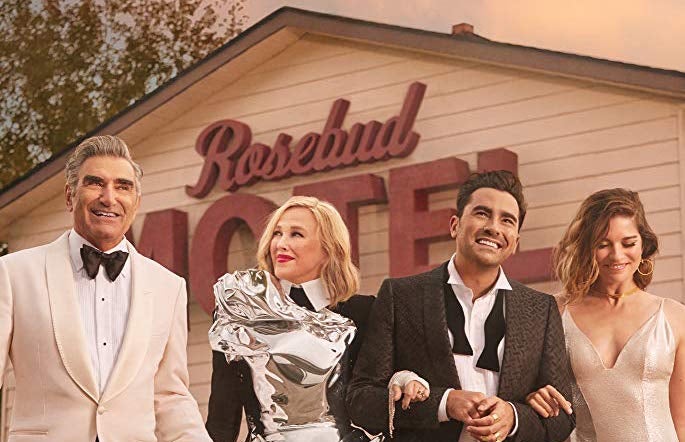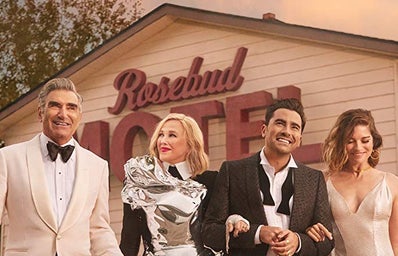As the weekend bled into our Wake Forest Wellness Wednesday, I finished the series Schitt’s Creek, a Canadian sitcom created by Dan Levy that has won 9 Emmys and received 19 nominations. The show follows the affluent Rose family of four, who owe their fortune to the Rose Video store empire. Defrauded by their business manager in the pilot episode, the Roses are forced to abandon their lavish lifestyles and move to a small town called “Schitt’s Creek.” The family works to overcome their financial ruin, while strengthening their familial relationship and making new lives for themselves in this unfamiliar, not-so-glamorous town.
To commemorate the series finale, my family and I decked out our house with Schitt’s Creek paraphernalia, complete with “Tweeters” coasters, Herb Ertlinger Fruit Wine, Café Tropical menus, and pictures of hilarious scenes and quotes captured during the six seasons of the show. I will admit that I am late to the hype surrounding this show, as it ran from 2015-2020. But as I attempted to watch the series’ last episode and farewell documentary, “Best Wishes, Warmest Regards,” with the TV screen blurred from my teary vision, I truly understood why the show deserves this hype—specifically in the importance and relevance of this comedy for the LGBTQIA+ community.
What is explicitly explained in the behind-the-scenes documentary, as well as is apparent throughout the seasons, is Levy’s unconscious yet purposeful inclusion of representation for the LGBTQIA+ community through the show’s characters and their relationships. Queer love was not shared in the spotlight of struggle; these characters did not have to surmount people’s homophobia or beg to be accepted. There were no raised eyebrows or side-eyes. The characters simply loved who they loved, faced with zero prejudice and zero questions. Levy’s script captured this nonchalance and normality perfectly in an episode where his character, David Rose, describes his pansexuality, explaining that he “like[s] the wine and not the label.” Simple as that.
Another revolutionary aspect of the show’s LGBTQIA+ relationships is that they were included directly in the main narrative. These characters and their love were not thrown in as a side relationship, just so that the show’s producers could check off a diversity box. Their struggles, love, and character development exist on the same playing field as everyone else, which helps to normalize this experience for all viewers.
With this unquestionable acceptance, the importance shifts to the town’s welcome sign, Moira’s Crows movie (Crows Have Eyes III: The Crowening), Alexis’ critically reviewed, limited reality series “A Little Bit Alexis,” and all the laughs and tears in between. Schitt’s Creek is not only a town I want to live in so that I could interact with all of these characters, but also because it sets up such a good example of how accepting and welcoming our society should be, and the steps we should all be taking to create this world where homophobia has no place.



